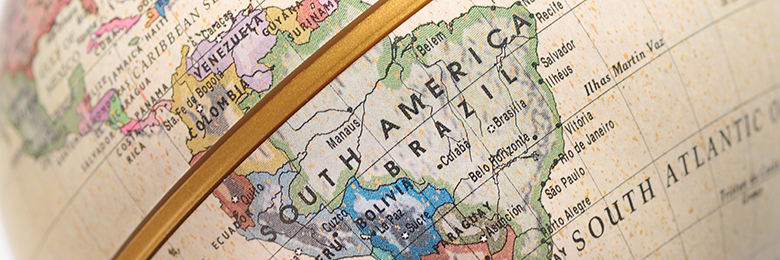What’s on the Minds of the Leading Families in Latin America

Latin America has been one of the most dynamic regions of the world in the last two decades, experiencing strong GDP growth and wealth. During this time, many of the region's family owned firms have also become strong and innovative global firms.
Family Office Exchange has been working with many families from Latin America who are seeking connections with families from other regions in an effort to exchange best practices for operating and sustaining their family enterprises in the future. From our work with these families, we have identified a series of trends that should be of interest to families around the world.

| The following are excerpts from the original article that appeared in the Summer 2018 edition of Family Office Magazine, the leading UK magazine on the Family Office and the Wealth Management space. |
1. Development of a Family Enterprise Mindset
Many of Latin America´s leading business families have evolved into Enterprise Families over the last 2 decades. An enterprise family is defined as a family whose holdings have grown beyond the core family business and now include liquid investment capital (often managed by a family office), family capital (the talent and human capital within the family), and philanthropic capital. Becoming an “enterprise family” implies managing a much higher degree of complexity and at the same time, provides an opportunity to become a more solid and enduring entity, as it requires spending more effort and time on issues like the joint values and the shared vision, fostering family unity, developing human capital and creating a governance system that is aligned with the shared vision and the higher complexity. This model implies the family enterprise leadership and the Family Office must focus on the more strategic issues.
2. Improved Governance Systems
The higher complexity mentioned before as well as the changes in regulation and in society have led to much more professionalized family governance systems. In Latin America, most families have separated the family assets from the business assets and have created a family office to manage their financial assets. In addition, most families have formalized a family assembly and a family council comprised of the more active family leaders. Most family firms also have a board of directors for the family holding company and many of them also have a board at the family office level. All of these boards are increasingly becoming more formal and professionalized, with a growing number of external non-family board members. Finally, a great number of families also have a family charter in place. The key issues that still need improvement in the region are formalizing governance further, moving away from the monarchical style of decision making, aligning the interests of all stakeholders and increasing the number of external board members.
3. Increased Engagement by the Next Generation
The key priority and concern of Latin American families is preparing the next generation and managing succession issues. As a result, families are starting to implement ways to engage the next generation, ranging from including them in the development of the family enterprise vision, participating in management in the family business or direct investment ventures, serving on governing boards, and taking a lead role at family assemblies. Most Latin families are also starting to realize the importance of the need for additional training programs tailored for the development of specific skills, behaviors, and attitudes – including developing the purpose, the values, and the family vision needed to become a responsible owner.
4. Increased Focus on Risk Management
Even though risk management was always at the heart of every Latin American family, given the region´s long history of inflation, currency devaluations, political instability and even physical security concerns, families have realized in recent years that the world – even in its apparent balance – is a much riskier place. Hence, they are increasingly managing risks holistically. The major risks identified by the families in the region are financial, next gen related, market conditions, other family risks and geopolitical events. Families are working on mitigating these risks through measures such as thinking in terms of goal-based asset allocation, diversifying their businesses in terms of geographies and market sectors, increasing their cash, working early on successions, improving governance, nurturing human capital, and making sure family structures are fully compliant.
5. Globalization
Many parts of Latin America developed isolated from the rest of the world over the last two centuries. In the last years, however, the region´s families have globalized their businesses and investments and overcome their historic home bias. These families have also started interacting much more and co-investing with the other global families. Some family offices have also opened small satellites in the U.S. and Europe while others have completely moved their headquarters abroad, realizing that their home countries are now too small for their new global scope.
6. Increased Transparency and Compliance
Latin American business families are becoming increasingly transparent and compliant given multilateral agreements aimed at sharing tax and financial information, new rules requiring the identification of the ultimate beneficial owners, various cases of data leaks and society´s changing attitude towards businesses that are regarded as not contributing a fair share of their profits in the form of taxes. All of these trends have created significant reputational risks, and as a result Latin America´s families are reducing complexity in their structures, changing domicile countries, using insurance-based solutions and executing successions early on.
7. Increased Commitment to Society
Latin families have stepped up and started taking their commitment to a higher level by launching Impact Investing efforts and becoming “impact business” or “impact families”, which entails embedding the impact goal into each of the phases of the enterprise value chain. In this respect, B Corps are becoming increasingly popular, with initiatives throughout the region. Some families have moved a step beyond, taking part in joint public/private initiatives aimed at fully tackling key social issues.
Overall, Latin America´s business families have progressed enormously in the last few years, paving the way for an increased likelihood of success and survival over the long run, and for an increased impact in their societies.
